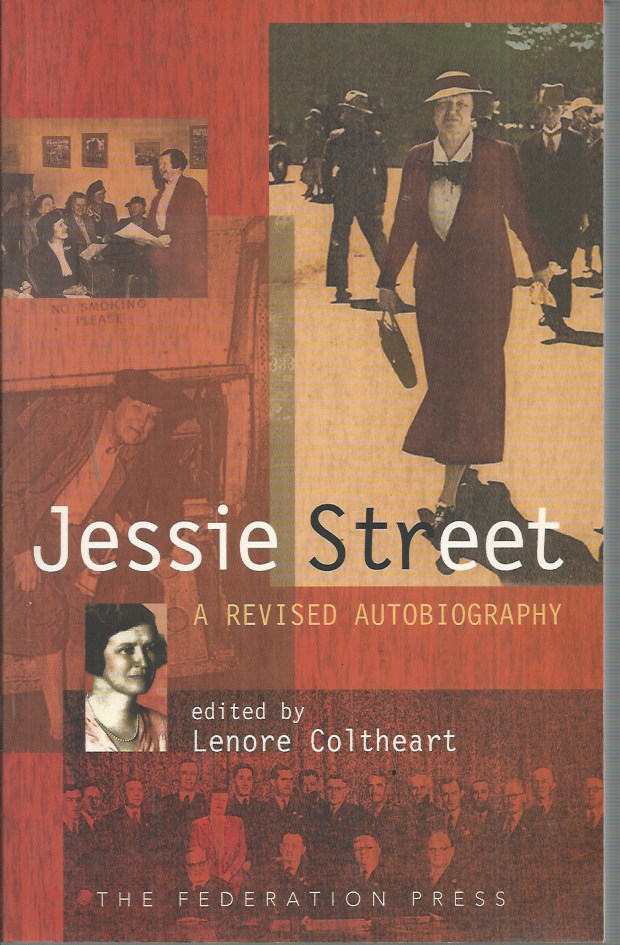AUSTRALIANA BIOGRAPHY ABORIGINAL
Jessie Street was a key figure in Australian political life for over 50 years. She was the only Australian woman delegate at the founding of the United Nations in 1945; the initiator of the 1967 “Aboriginal” amendment of the Australian Constitution; the colleague of Pablo Picasso on the World Peace Council Executive; and a controversial promoter of the Soviet Union during the Cold War, known as “Red Jessie” to a generation of Australians. She led an extraordinary, vivid life. Her autobiography, written with candour and humour, is a guidebook to the 20th century. From Jessie’s early life in the Australian bush, readers join suffragette marches in London; hear civil rights singers in the jazz clubs of New York; visit occupied Egypt, imperial India, outback Australia, Stalin’s Moscow; witness the Anschluss and Sudetenland crises in Europe in 1938; and see the destroyed cities of London, Berlin, Leningrad, and Hiroshima after the Second World War. Her life was one dedicated to peace and justice. The daughter-in-law, wife and mother of three Chief Justices, she met and worked with extraordinary figures such as Eleanor Roosevelt, Nancy Astor, Margaret Sanger, Jawaharal Nehru and many others. Her autobiography, first published in 1966, is now reissued, corrected and edited, a sparkling, powerful, bright book that truly reflects Jessie Street’s energy, charm and practical humanitarianism.
- x, 246 p. : ill., ports. ; 24 cm. #151123
- Street, Jessie, 1889-1970
- Women — Australia — Biography
- Women’s rights — History
- International agencies
- Feminism — History
- Race relations – Racial discrimination – Employment
- Employment – Conditions – Wages – Stolen wages
- History – Biographies – Non-Indigenous – Autobiographies
- Politics and Government – Political action – Anti racism
- Race relations – Racial discrimination – Legislative
- Race relations – Racial discrimination – Economic
- Politics and Government – Political action – Activism
- Politics and Government – Political action – Constitutional recognition
- Australia — Politics and government — History — 20th century
